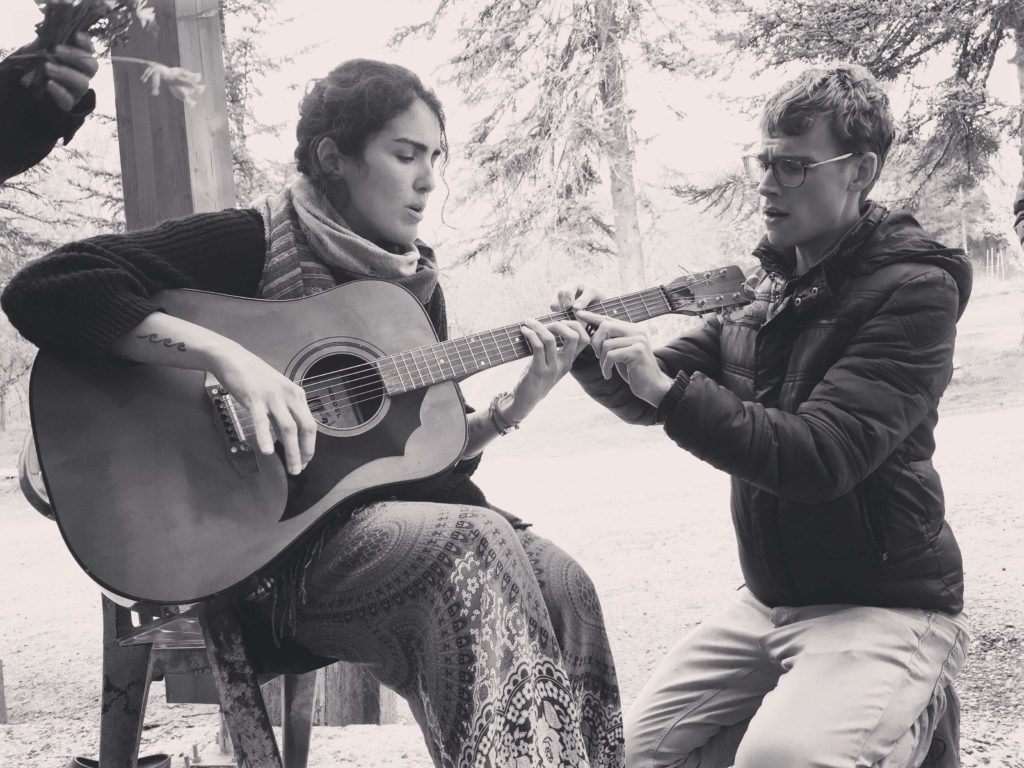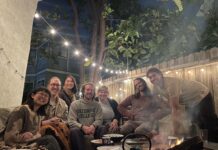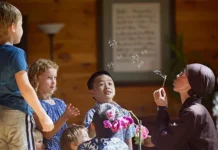
Tere from Wake Up Manchester shares about her Sangha experiences and how the practice helps her write music and support others as a voice therapist.
Q: What is your relationship with mindfulness and meditation? How did this develop in your life?
Tere: I grew up in a town in Chile where almost everyone is Catholic. When I was a teenager, I wondered about meditation, but I never did it because I never found the space. My mum made me curious about spirituality, and praying is a little bit like meditating.
When I went to university, I came across the Diamond Way Buddhism so I went to that Sangha. It was nice for some years, and I participated a lot because it was a small Sangha; I organised events and drove around with the teachers, and I felt I was part of a family; I learned a lot, and I am grateful. But at one point the tradition became a little dogmatic for me, and I didn’t want to follow dogmas anymore.
I felt like according to some of their teachings, I couldn’t be angry or sad; I had to be happy all the time, and that was nice for a while because it helped me cope with things I wasn’t ready to face yet. Then I became numb and felt it was time to leave. But I was always searching for different things, so I looked for different meditations. I did a pineal gland activation meditation and many things in between. At one point I stopped, but after a year, I was angry all the time.
Then I came across Tara Brach, and I took one of her online courses. I don’t remember if a friend or a therapist told me about her. It was wonderful because she combines psychology with Buddhism, mindfulness and heart practices. The heart practices, especially loving kindness, made me come back to myself. I consider her one of my main teachers, and I pay attention when she quotes somebody or says, “I went to this retreat with Thich Nhat Hanh.” I looked up Thay online and downloaded some of his books in the Kindle app, but I didn’t know about Plum Village. I was just doing mindfulness, and loving kindness and compassion practices.
Afterwards, I moved to Manchester. A friend whom I met there told me, “They’re starting a Wake Up Sangha.” I didn’t know what a Wake Up Sangha was, but I wanted a Sangha because I felt like I reached a plateau with my practice, and I needed the support of a community. I wrote to Wake Up Manchester’s Facebook page, and Dexter wrote me back. I asked, “What can I help with?” and I started there.
Q: You touched on the topic of wanting to practice in community. You have your local Sangha in Manchester, and you experienced the community of practice in Plum Village for a few days. What does community mean to you now?
Tere: Ever since the moment I wrote to Wake Up Manchester’s Facebook page, things have been falling into place. I felt like “Okay, this is it.”
It has been nice although it’s a small community. We are 3 or 4 people who usually organise the evenings, and we have a rotating Sangha every Monday. It has been different because I started facilitating almost immediately. It has not been a “new” experience because I had been part of a Sangha before, but it’s been new in the sense that I feel more comfortable with this tradition.
I feel that if I make a mistake, the Sangha is there and they don’t mind; they won’t judge, and we can always talk about things. It’s also nice to have a small group where we can discuss how we want things to go. And Dexter, who started the Sangha, hasn’t taken a position where he’s the one who organises and who tells us what to do. He lets us be creative and lets us choose the practices we will guide. Also, they have become my friends, which is nice.
I use mindfulness in my therapy to be there with the patient.
I haven’t been on a retreat in a long time so it’s been an intense experience in Plum Village, but also heartwarming because of the people I met. I feel like they’re already my friends, and I feel accepted for who I am. That’s the sense I am giving the community.
We don’t always find that acceptance outside because there isn’t a lot of awareness on how to treat each other and how to accept each other. We are usually critical, even with our friends and family, and I feel that being in Plum Village is like swimming in a giant pool of love; I really like it.
Q: You are both a voice teacher and a musician. How does your mindfulness practice inform your work?
Tere: In Chile, I did voice therapy. In the beginning, I wasn’t very mindful or present in the moment because I wasn’t practicing mindfulness. The practice I do as a voice therapist, which is my side job, has to do with working with what happens in the moment. I have to be present with the patient doing the exercises because it’s based on sensory-motor aspects of the voice, and I have to pay attention to the sounds, the movements and everything the patient does, and give updated feedback. I did this before discovering mindfulness; then when I found mindfulness, I thought, “Oh, this makes sense!”
There’s a healing element about the therapist being present for the patient. The voice therapy field touches emotions a lot of times for whatever reason anybody can think of. One could think it’s the fifth chakra, an energetic thing, or just the fact that many people keep emotions inside and this affects their voice because of the nervous system.
When someone does therapy, it’s important to be there because the patient sometimes starts crying or has a strong emotion and needs to be seen and listened to. That’s how I use mindfulness in my therapy: to be there with the patient. I also practice compassion because it’s important to listen deeply to what the patient says and feels. Of course, I’m not perfect and that doesn’t happen 100% of the time, but I do my best.
If I’m teaching somebody how to sing, it’s important they feel that they have a safe space to make funny sounds I ask them to make, and to remind them to breathe and not try to do everything perfectly.
In my music, for a long time, I was writing songs about me and things that happened, and this helped me. Lately, lyrics have been coming to me when I’m deep in my practice; they are more meaningful and come from the heart, not from a resentful place or a victim’s place. They may come from a wise, higher self, I think.
Mindfulness helps me with that. It’s not that I meditate and then make a song. When I am consistent in my practice, my songs become more mindful and I have messages that not only help me but help other people because they come from a place of vulnerability and real self-compassion. At the same time, they touch a wisdom we all have, although we may forget. Sometimes we have despair, and we don’t know what to do with ourselves. But if we sit and breathe with the pain, we can access that wisdom. I hope that’s what I’m reflecting in my songs.
Interview conducted by Annica and transcribed by Elaine Fisher
















